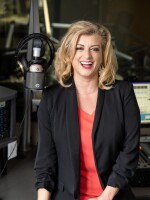Bubbling away in a large container behind the scenes here at this botanic garden in Santa Barbara is what they call 'compost tea'. Once it's brewed, there's another ingredient to add for a final boost.
"We are planning to mix it with fish hydrolysate and other organic fertilizers for applications," explained Chris Ziliotto, Lotusland’s Manager of Sustainability.
Fish as fertilizer is nothing new. In fact, it's been used for centuries.
"Through our compost and organic fertilizers, we feed the soil. The soil then nurtures the plants. So we're not pumping them full of synthetic fertilizers as sort of conventional horticultural practices would dictate. I think the most amazing part of this is that it's locally sourced. That's the beauty of it," said Paul Mills, the Director of Conservation at Lotus Land.

Those ancient techniques are being given a new lease of life by a local seafood company who, after sourcing and preparing local and sustainable fish and seafood for sale, found themselves wondering what to do with an abundance of scraps.
"We buy seafood directly off the docks from local fishing boats. We bring it to our facility in Carpinteria, and we filet the fish ourselves, and we end up with hundreds of pounds of fish scraps. All of these healthy ingredients that are in fish scraps are things that the soil used to get in abundance and no longer does, and the soil is adapted to really thriving on it," explained Kim Selkoe from Get Hooked Seafood.
"One of the great surprising things we found out too, is that it really comes out smelling almost like a mix between balsamic vinegar and soy sauce, like it's really a fish sauce," said Selkoe.
The scraps are processed at their headquarters in Carpinteria. They're put through a grinder and then processed using lactobacillus bacteria.
Victoria Voss - also from Get Hooked Seafood - says the grinder makes easy work of the scraps.
"That thing can take down a swordfish carcass like that. No problem," said Voss.
"You know, we're fish people at heart," said Voss, "But I have gotten so inspired about the importance of soil health and restoring that land sea connection and really making sure our soil is really rich and healthy has just a myriad of benefits."

Back at Lotusland, where the seafood hydrolysate is being tested, Rebecca Anderson, the Executive Director of Lotusland, says it's an opportunity for them to learn but also to share that knowledge.
"We are an organic garden and we are a leader in the field of gardening, with the planet in mind and we want to be a model of that for others. We have an opportunity here, not just to make our own collections beautiful and thriving, but to use the garden as a teaching garden to teach others how to do this as well. So through this partnership and collaboration, which is funded by Eric and Wendy Schmidt, there's lots to learn to do for our own role and agency in climate control and saving the planet," said Anderson.
So the next time you're tucking into some locally caught salmon, you could also be helping the garden grow.



